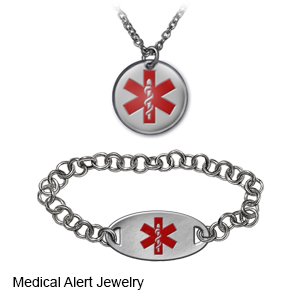Angioedema
Medically reviewed by Drugs.com. Last updated on Apr 2, 2024.
Angioedema is sudden swelling caused by fluid that collects in deep layers of the skin. Swelling occurs most often on the face, lips, tongue, or throat, but it can happen anywhere on the body. Your risk for angioedema increases if you have food or insect allergies or a family history of angioedema. Emotional stress, autoimmune disorders, and medicines, such as ACE inhibitors, also increase your risk. Your symptoms may be mild, or you may develop anaphylaxis. Anaphylaxis is a sudden, life-threatening reaction that needs immediate treatment.
DISCHARGE INSTRUCTIONS:
Call 911 for signs or symptoms of anaphylaxis,
such as trouble breathing, swelling in your mouth or throat, or wheezing. You may also have itching, a rash, hives, or feel like you are going to faint.
Return to the emergency department if:
- You have sudden behavior changes or irritability.
- You are dizzy and your heart is beating faster than usual.
Contact your healthcare provider if:
- Your swelling does not improve, even after you take your medicines.
- You have questions or concerns about your condition or care.
Medicines:
- Antihistamines decrease mild symptoms such as itching or a rash.
- Epinephrine is used to treat severe allergic reactions such as anaphylaxis.
- Steroids may help decrease inflammation.
- Take your medicine as directed. Contact your healthcare provider if you think your medicine is not helping or if you have side effects. Tell your provider if you are allergic to any medicine. Keep a list of the medicines, vitamins, and herbs you take. Include the amounts, and when and why you take them. Bring the list or the pill bottles to follow-up visits. Carry your medicine list with you in case of an emergency.
Steps to take for signs or symptoms of anaphylaxis:
- Immediately give 1 shot of epinephrine only into the outer thigh muscle.
- Leave the shot in place as directed. Your healthcare provider may recommend you leave it in place for up to 10 seconds before you remove it. This helps make sure all of the epinephrine is delivered.
- Call 911 and go to the emergency department, even if the shot improved symptoms. Do not drive yourself. Bring the used epinephrine shot with you.
Treatment options
The following list of medications are related to or used in the treatment of this condition.
Safety precautions to take if you are at risk for anaphylaxis:
- Keep 2 shots of epinephrine with you at all times. You may need a second shot, because epinephrine only works for about 20 minutes and symptoms may return. Your healthcare provider can show you and family members how to give the shot. Check the expiration date every month and replace it before it expires.
- Create an action plan. Your healthcare provider can help you create a written plan that explains the allergy and an emergency plan to treat a reaction. The plan explains when to give a second epinephrine shot if symptoms return or do not improve after the first. Give copies of the action plan and emergency instructions to family members, work and school staff, and daycare providers. Show them how to give a shot of epinephrine.
- Be careful when you exercise. If you have had exercise-induced anaphylaxis, do not exercise right after you eat. Stop exercising right away if you start to develop any signs or symptoms of anaphylaxis. You may first feel tired, warm, or have itchy skin. Hives, swelling, and severe breathing problems may develop if you continue to exercise.
- Carry medical alert identification. Wear medical alert jewelry or carry a card that explains the allergy. Ask your healthcare provider where to get these items.

- Keep a symptom diary. Include information about how often your symptoms occur, how long they last, and if they are mild or severe. Also keep information on what you ate, what happened, or which medicines you took before the swelling started.
- Avoid triggers. Triggers include foods, medicines, and other things that you know cause symptoms. You may need to see a specialist, such as an allergist or dietitian, to learn what to avoid.
Follow up with your doctor as directed:
Write down your questions so you remember to ask them during your visits.
© Copyright Merative 2024 Information is for End User's use only and may not be sold, redistributed or otherwise used for commercial purposes.
The above information is an educational aid only. It is not intended as medical advice for individual conditions or treatments. Talk to your doctor, nurse or pharmacist before following any medical regimen to see if it is safe and effective for you.
Learn more about Angioedema
Treatment options
Care guides
Further information
Always consult your healthcare provider to ensure the information displayed on this page applies to your personal circumstances.
